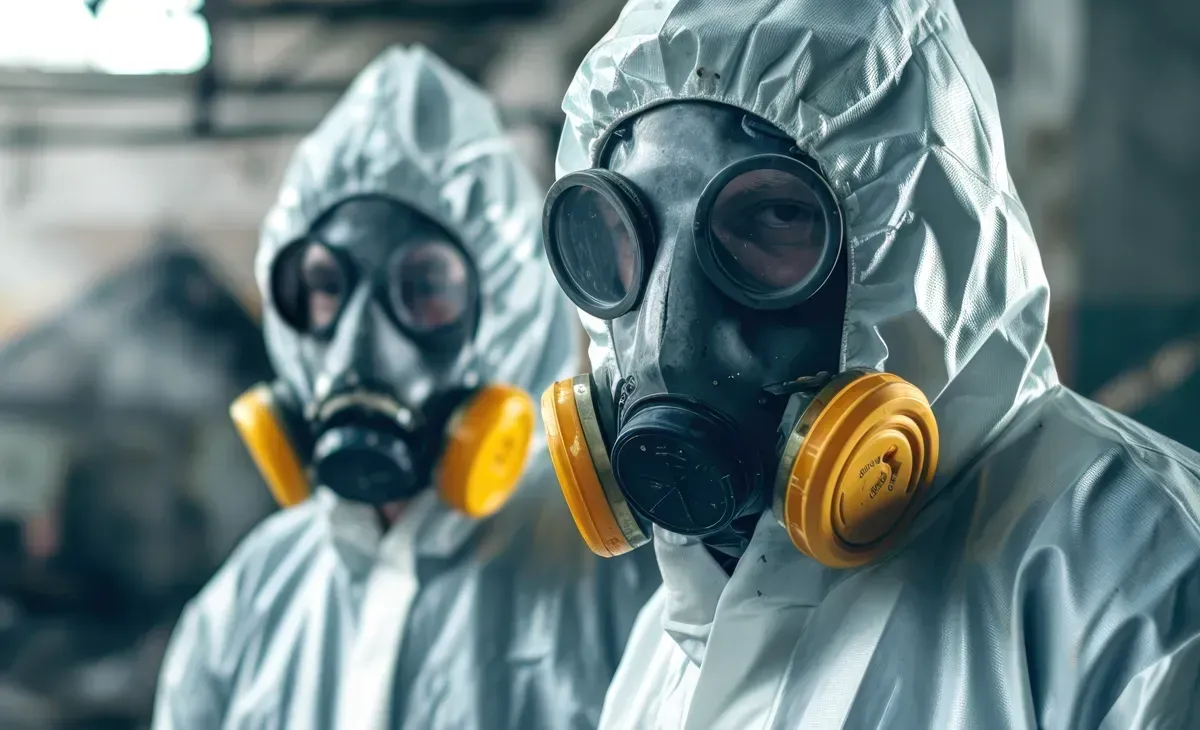Tips to Improve Indoor Air Quality Standards In Hospitals
Frontline medical waste professionals are no strangers to the dangers of working in an environment that often produces unpleasant odors and hazardous fumes. But as they work tirelessly to ensure proper processing of hazardous materials, their own indoor air quality standards often take a backseat. However, with the rise of microplastic pollution and its high potential health risks, it has become increasingly important to improve indoor air quality in medical waste facilities. In addition, medical waste professionals need to understand and put into practice how to avoid microplastics altogether – now more than ever.
Luckily,
Clean Waste Systems offers innovative solutions such as the patented Humidizone® and insider tips that not only make waste processing safer and more sustainable but ultimately protect the health and wellbeing of these essential workers.

Improve Indoor Air Quality Standards – A Comprehensive Review
Get Rid of Microplastic Pollution
Knowing how to avoid microplastics is an item on every medical waste professional’s list. After all, medical waste disposal not only exposes your team to dangerous processes, but it can also contribute to microplastic pollution in our water and environment. Some disposable, single-use medical products contain plastic, which breaks down into microplastics and becomes a source of pollution. Go the extra mile by investing in sustainable, plastic-free products or reusable alternatives.
Use HEPA Filters
Want to improve indoor air quality? Invest in an air filtration system that utilizes HEPA. High-efficiency particulate air (HEPA) filters capture microplastic particles that are released during the disposal process, helping remove contaminants such as viruses, bacteria, and other particles from the air. These filters are excellent for improving air quality in areas with high concentrations of hazardous materials. This is because they are able to trap particles that are as small as 0.3 microns.
Stay on Top of Sustainable Waste Management
Sustainability is critical to creating a better future for everyone. Incorporate sustainable waste management practices into your daily operations. Reduce waste by recycling and composting. Look for ways to repurpose medical waste instead of disposing of it. This is all at the heart of what Clean Waste Systems stands for and why they believe in promoting sustainable waste management practices to minimize environmental impacts and create a healthier future for the planet.
Regularly Clean and Maintain Workspaces
One of the easiest (and simplest) ways to improve indoor air quality in the medical waste industry is by regularly cleaning and maintaining workspaces. This means wiping down surfaces, sweeping and mopping floors, and vacuuming carpets to reduce dust and other airborne particles. Additionally, it's essential to regularly change air filters in HVAC systems and other ventilation systems to prevent pollutants and allergens from being circulated throughout the workplace. Regular maintenance, including cleaning of filters and other components, can help prevent the buildup of contaminants. Thus improving air quality within your facility.
Properly Store and Dispose of Medical Waste
By ensuring that medical waste is properly stored, labeled, and disposed of, you can significantly reduce the amount of pollution and pathogens released into the air. To make things even more clean, Clean Waste Systems provides patented Humidizone®
technology for sterilization and odor reduction, which is an innovative solution to help eliminate medical waste-related pollution.
Implement Ozone Technology
It’s no secret that traditional medical waste disposal processes emit hazardous fumes and pose a risk to both operators and the environment. But
Clean Waste Systems’ ozone technology eliminates these issues, providing a safer and more sustainable solution. Mentioned not once but several times for good reason, the Humidizone® humidified ozone formula and sterilization process creates a cleaner, safer, and more sustainable future for medical waste processing. By using ozone technology, you will ultimately produce zero emissions, significantly reduce waste volume, and minimize energy and water consumption. Plus, do so while having the CWS team of experts with you from installation to maintenance to ensure your system performs at its best.
Facts & Figures: Monument Health Case Study
When it comes to medical waste processing, there are plenty of factors to consider, from compliance with regulations to ensuring the safety of employees and the environment. But there's one area that often gets overlooked: indoor air quality standards. Given that medical waste disposal often involves hazardous materials and chemicals, improving air quality is crucial for keeping frontline waste professionals safe. Even more, doing so alongside an innovative team that values your health just as much as you do.
Contact Clean Waste Systems today for your custom quote and get started alongside a team of experts dedicated to helping you achieve your sustainability and safety goals.
Contact Clean Waste Systems today for your custom quote and get started alongside a team of experts dedicated to helping you achieve your sustainability and safety goals.

